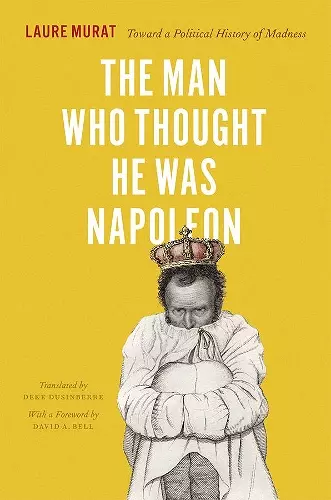The Man Who Thought He Was Napoleon
Toward a Political History of Madness
Laure Murat author Deke Dusinberre translator
Format:Hardback
Publisher:The University of Chicago Press
Published:26th Sep '14
Currently unavailable, and unfortunately no date known when it will be back

The Man who thought he was Napoleon is built around a bizarre historical event and an off-hand challenge. The event? In December 1840, nearly twenty years after his death, the remains of Napoleon were returned to Paris for burial - and the next day, the director of a Paris hospital for the insane admitted fourteen men who claimed to be Napoleon. The challenge, meanwhile, is the claim by great French psychiatrist Jean-Etienne Dominique Esquirol (1772-1840) that he could recount the history of France through asylum registries. From those two components, Laure Murat embarks on an exploration of the surprising relationship between history and madness. She uncovers countless stories of patients whose delusions seem to be rooted in the historical or political traumas of their time, like the watchmaker who believed he lived with a new head, his original having been removed at the guillotine. In the troubled wake of the Revolution, meanwhile, French physicians diagnosed a number of mental illnesses tied to current events, from "revolutionary neuroses" and "democratic disease" to the "ambitious monomania" of the Restoration. How, Murat asks, do history and psychiatry, the nation and the individual psyche, interface? A fascinating history of psychiatry - but of a wholly new sort - The Man Who Thought He Was Napoleon offers the first sustained analysis of the intertwined discourses of madness, psychiatry, history, and political theory.
"Murat is a subtle writer and stylist, able to assimilate a wealth of archival evidence into a forceful narrative. She gives new poignancy to the problem of distinguishing between what patients say and how their doctors represent their voices, and she makes her own process in the archives part of the story she is telling. Her imagination, her curiosity, and her intellectual independence enable her to glean a new understanding of the mark of history on madness-showing, along the way, the pitfalls in too easy an understanding of mental life." (Alice Kaplan, author of Dreaming in French)"
ISBN: 9780226025735
Dimensions: 23mm x 16mm x 2mm
Weight: 539g
304 pages